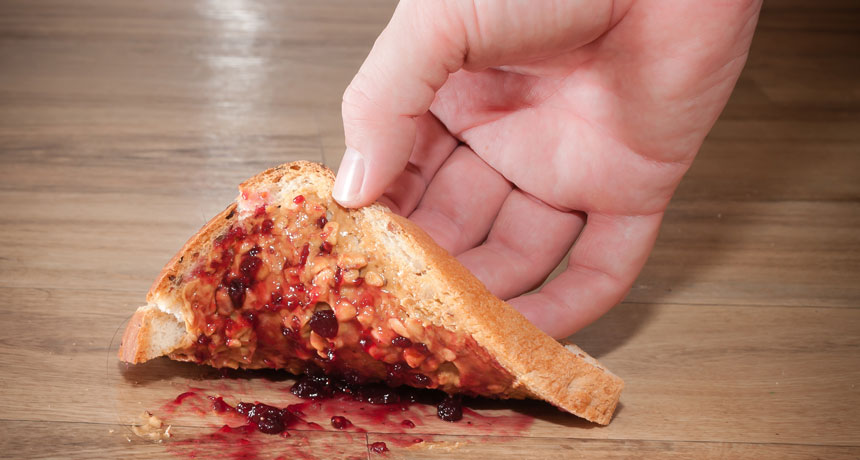It’s time to retire the five-second rule
Bacteria jump quickly onto dropped food

DON’T EAT THAT Wet foods that fall on the floor pick up bacteria quickly, a new study suggests.
Mark Deibert/iStockphoto
Bacteria jump quickly onto dropped food

DON’T EAT THAT Wet foods that fall on the floor pick up bacteria quickly, a new study suggests.
Mark Deibert/iStockphoto